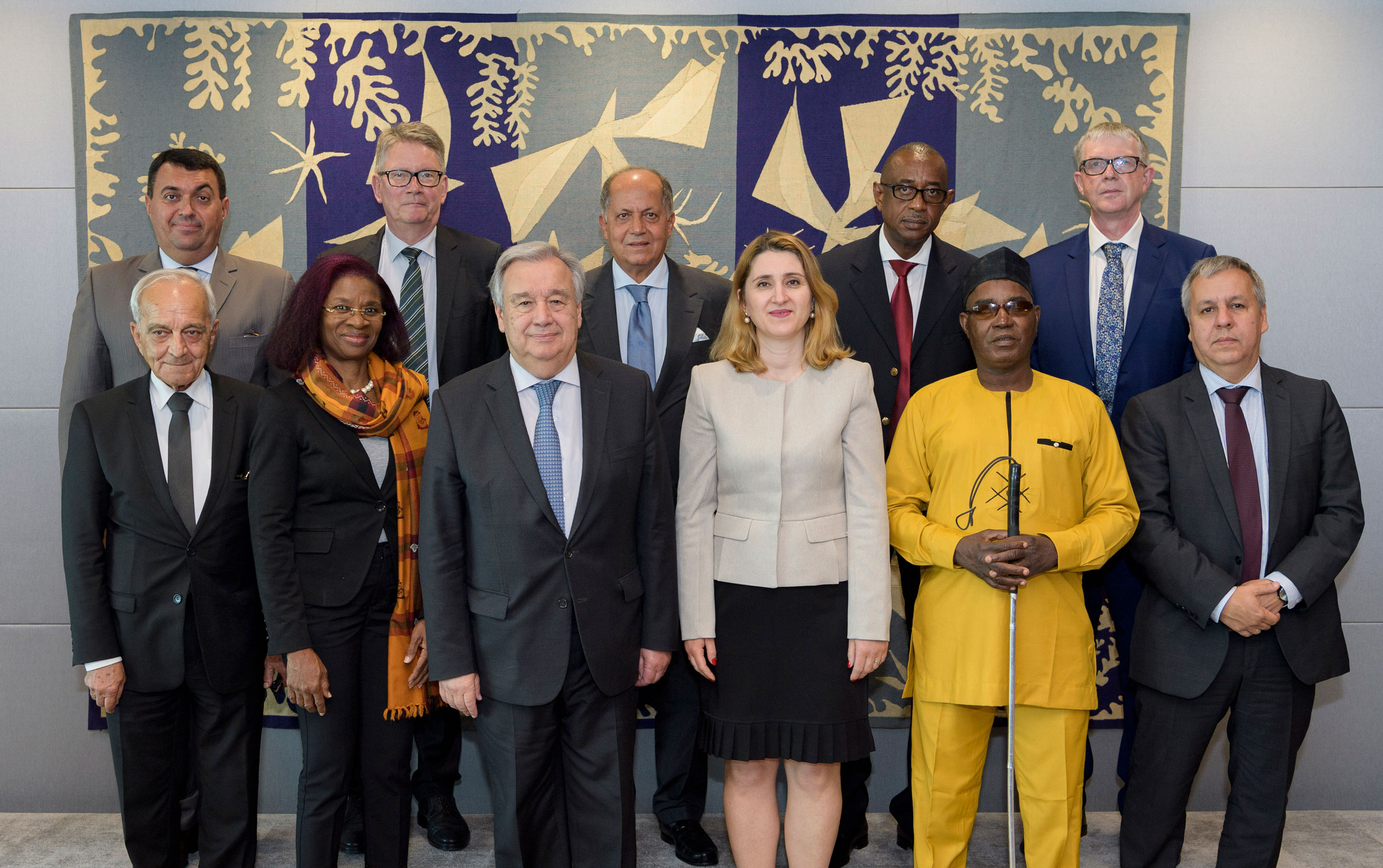
ISHR fundraising appeal donor board
A big thanks to everyone who is getting behind our fundraising appeal and investing in a better world by supporting human rights defenders!

The Chairpersons of the ten UN human rights Treaty Bodies have agreed to collectively move towards fixed and predictable review cycles of States parties. In doing so, the Chairs accede to a key suggestion of the 2020 review of the Treaty Bodies.
In a joint submission to the co-facilitators of the 2020 review of UN Treaty Bodies (Switzerland and Morocco), the 10 Chairs of the UN Treaty Bodies shared their decision to review countries in accordance with a fixed schedule. The adoption of predictable cycles of State party reviews, which the UN Human Rights Commmittee has pioneered, means that all States parties will be periodically reviewed, whether they submit their reports on time or not.
“The adoption of fixed and predictable review cycles by all Treaty Bodies constitues a major breakthrough” says Patrick Mutzenberg of the Centre on Civil and Political Rights, an organisation that works closely with the Human Rights Committee, and a member of the TB-Net network. “With four out of five States currently failing to submit their periodic reports on time to the Treaty Bodies, the proactive adoption of a fixed calendar of reviews will significantly facilitate civil society engagement in the process”.
The move towards fixed and predictable review cycles by the Treaty Bodies will also contribute to equality of treatment amongst States parties, notably between the minority of States parties that submit periodic reports on time, and those who don’t. In opting for fixed cycles, the Treaty Bodies will follow established practices amongst other international human rights mechanisms such as the Universal Periodic Review, by which all States are reviewed according to a fixed calendar.
enhanced predictability & simplified cycle of review are key NGO demands for the UN #TreatyBodies – kudos to #HRCtte for taking significant steps in that direction pic.twitter.com/01Fn11G1eU
— Vincent Ploton (@vploton) September 13, 2019
ISHR welcomes the move towards fixed review cycles. Nevertheless, ISHR remains concerned about the distinction in periodicity of reviews between the Covenant Committees and the other Convention Committees, currently envisaged in the Chairperson’s submission. ISHR voiced those concerns during the 28 August civil society briefing organised by the co-facilitators of the 2020 Treaty Body Strengthening Process.
In addition to the question of fixed review cycles, ISHR’s statement addresses: elections and membership of the Committees; the capacity strengthening programme; in-country reviews; and digital tools.
Link to the Chairpersons’ submission to the co-facilitators: https://www.ohchr.org/Documents/HRBodies/TB/HRTD/CoFacilitationProcess/o…
Link to the ISHR statement to the co-facilitators: https://www.ishr.ch/sites/default/files/documents/ishr_statement_28_aug_…
photo: UN Photo/Manuel Elias

A big thanks to everyone who is getting behind our fundraising appeal and investing in a better world by supporting human rights defenders!

The UN Committee against Torture (CAT) reviewed Bahrain’s fourth periodic report (CAT/C/BHR/4) during its 83rd session in Geneva in November 2025. The dialogue focused heavily on the situation of human rights defenders, torture, accountability, and conditions of detention. ISHR and partner organisations played a central role in ensuring that the Committee addressed the urgent cases of several detained defenders.

As the genocide in Gaza exposes deep corporate complicity, experts and human rights defenders convened in Geneva to discuss urgent paths toward accountability. This discussion unpacked how businesses, investors, and States must act now to end profiteering from atrocity crimes.